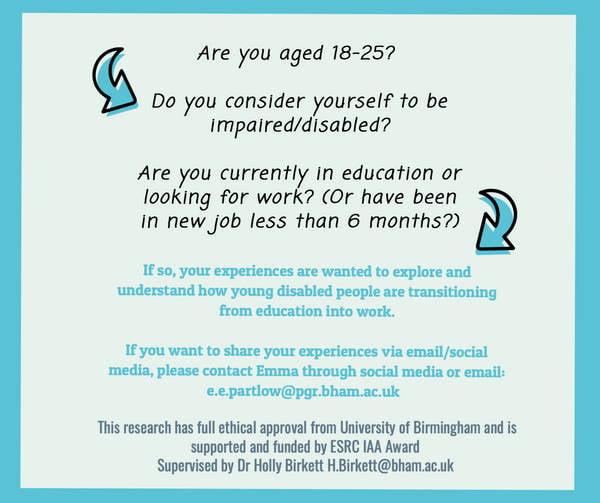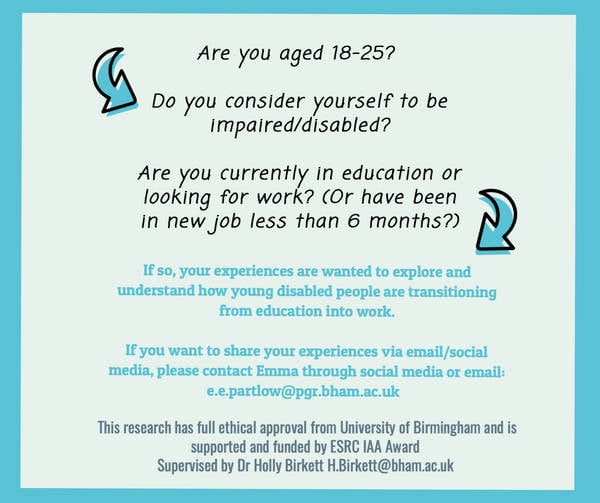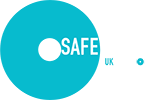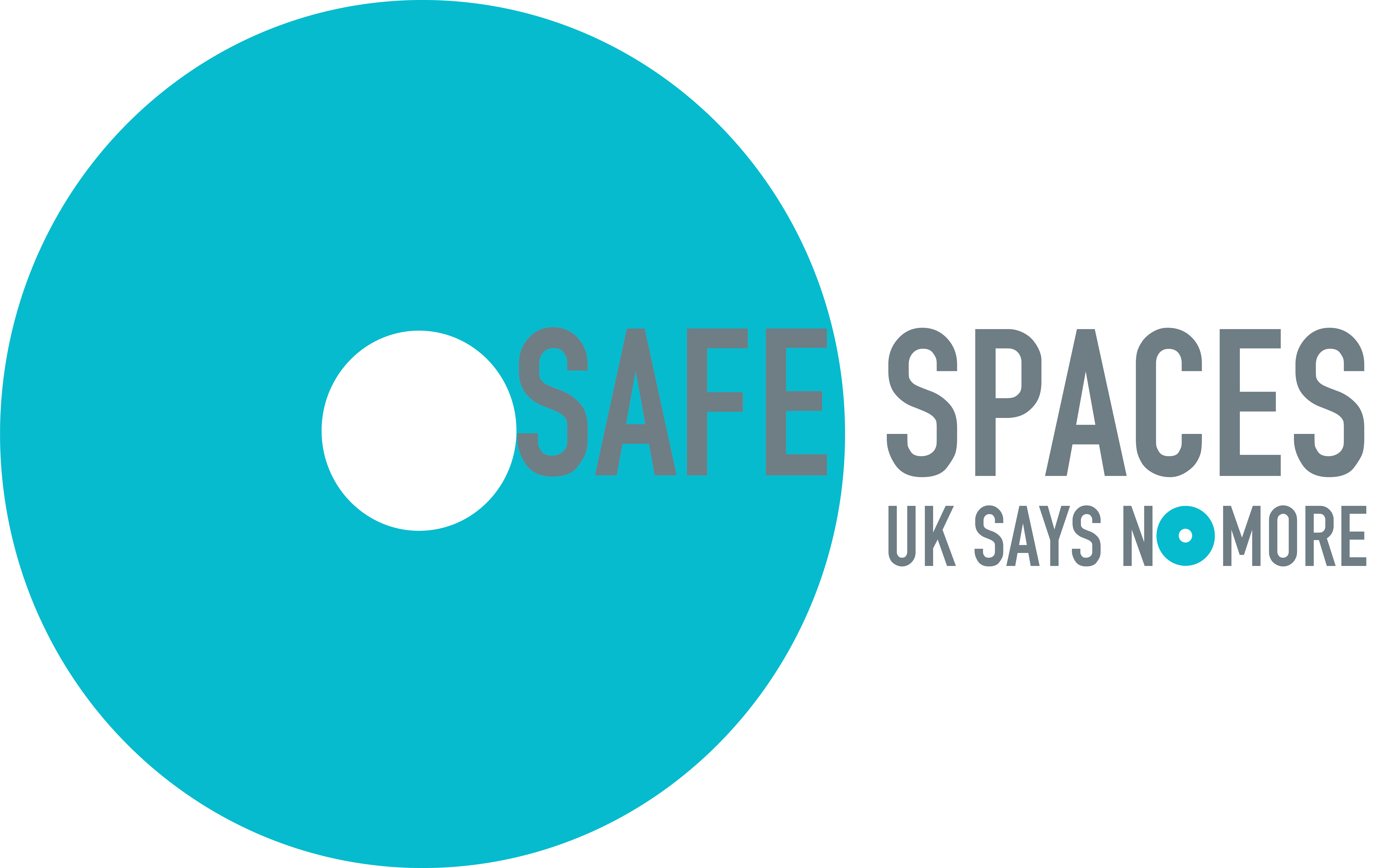Exploring how young disabled people are self-identifying is also an important part of this project. For example, they could well be using the term ‘disabled’ for the first time for the purpose of applying for jobs or requesting work related adjustments and support. Understanding more about how young disabled people are negotiating the process of disability disclosure and information sharing about their impairment/long-term health condition/disability when searching for and entering work is a key focus that will be explored through the project.
Tips surrounding how to secure work when you are disabled often involve ‘showcasing’ and being open about your impairment. However, this process is far from simple and could be something that young people are navigating for the first time. Furthermore, young disabled people may be facing key questions for the first time on application forms such as: ‘do you define yourself as impaired or disabled (according to the Equality Act 2010 definition’ or ‘do you have a disability that impacts upon your ability to do this job?’ Many young disabled people may not feel comfortable subscribing to this label and may simply want to feel supported when searching for work and navigating the recruitment process without feeling as though they need to present themselves as a talented disabled individual.
This research aims to explore and understand how these issues are being experienced so that the findings can be translated into some practical advice for both employees and employers. Creating resources that steer clear of a potentially overwhelming narrative that focuses on ‘success’ that may feel intimidating rather than empowering or supportive to disabled people.
What does this research aim to achieve?
At the end of this project evidence-based resources will be produced to support young disabled people with the transition to work and for employers to help support young disabled individuals with this transition.
It is important that employers are authentically inclusive and not only able to attract disabled candidates but also effectively support them and be aware of the complex range of perspectives and disabilities that exist. Examples of barriers disabled young people may be facing and some practical examples of how employer practice can be altered towards being more inclusive and supportive will be included. Social media campaign ideas and work-place practice ideas may be given to be used, all created based upon the findings of this research.
The resources will outline some key aspects of law in this area in an accessible way, rights and simple steps that could be undertaken to help promote a more inclusive workplace. [The suggestions in the guide will be based upon the assumption that employers will be operating in accordance with all aspects of employment law and legislation].
There is an important role that educational institutions can also play in offering further support for young disabled people as they apply for work; the ways in which existing tools and forms of support can be updated will be explored within this research.
About the researcher: Emma Partlow
Emma is a disabled researcher who is passionate about improving understanding around disability and society in a bid to create practical change to better support the daily lives of disabled people.
If you would like to know more about this project, or take part, please visit the ‘Moving into Work’ Facebook page or contact Emma Partlow on: e.e.partlow@pgr.bham.ac.uk
The Moving into Work survey can be completed here





